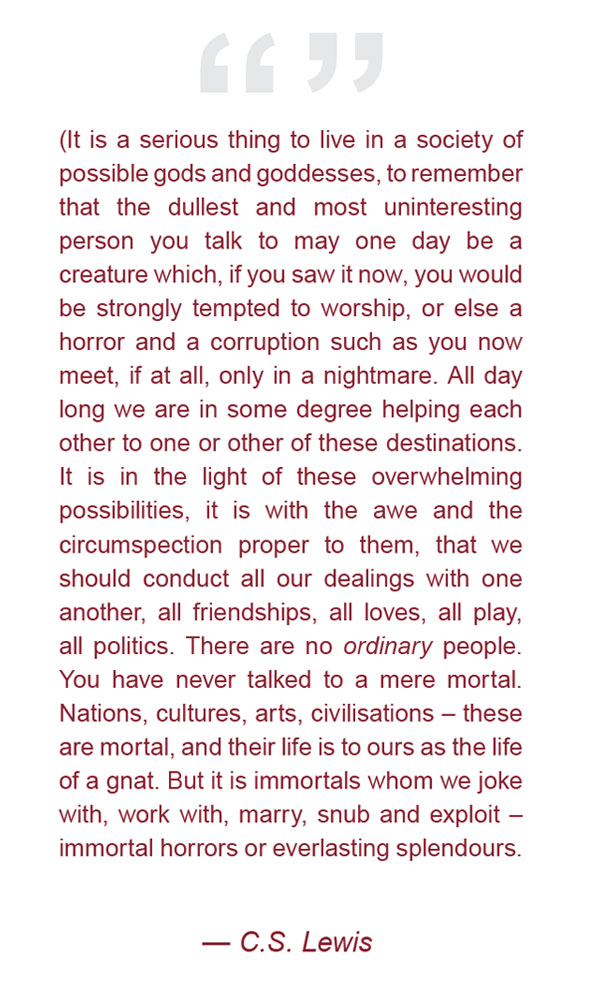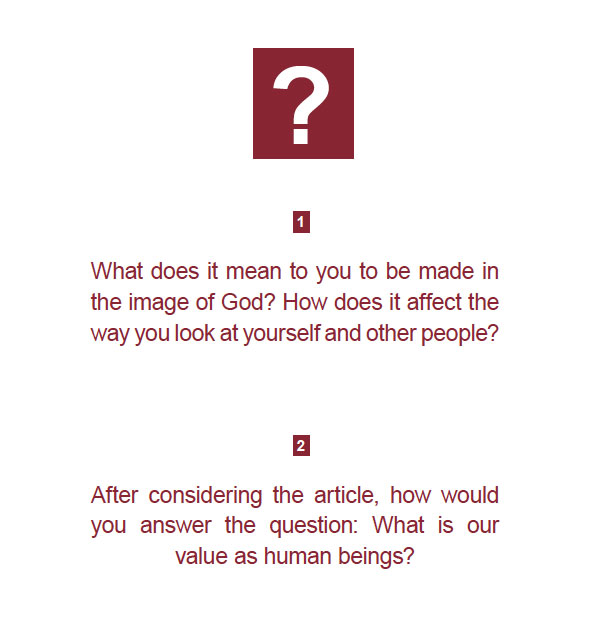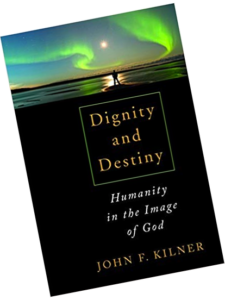Back to series
Beast or Masterpiece:
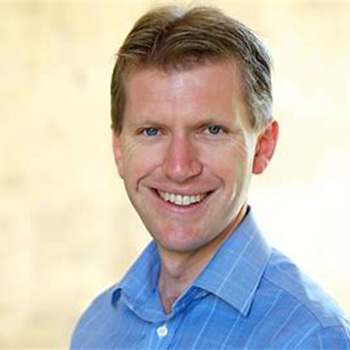

Recommended Reading:
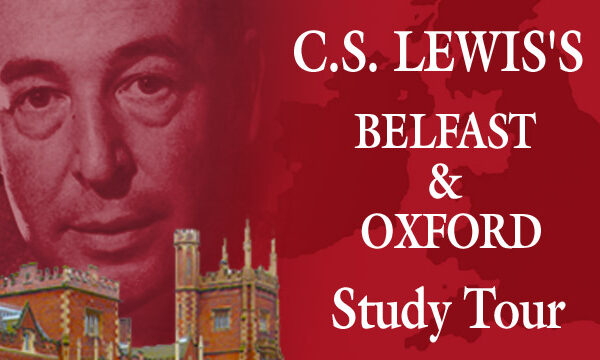
Download or Listen to Audio
Beast or Masterpiece:
What Does It Mean to Be Human?
Click here to open a Print-Friendly PDF
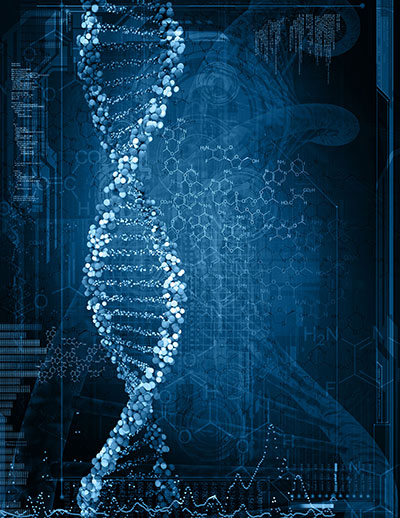 On July 3, 1884, four English sailors on board a yacht, the Mignonette, encountered a terrible storm in the Atlantic Ocean. The yacht sank, leaving them stranded in a tiny wooden lifeboat. They had little food and no water. By their eighth day adrift, they were desperate and made the fateful decision to kill the cabin boy, who was already sick from drinking seawater. For four more days, until they were rescued, the three surviving sailors fed on the cabin boy’s body and blood.
On July 3, 1884, four English sailors on board a yacht, the Mignonette, encountered a terrible storm in the Atlantic Ocean. The yacht sank, leaving them stranded in a tiny wooden lifeboat. They had little food and no water. By their eighth day adrift, they were desperate and made the fateful decision to kill the cabin boy, who was already sick from drinking seawater. For four more days, until they were rescued, the three surviving sailors fed on the cabin boy’s body and blood.
When they returned to England and the story broke, it scandalized the nation and the world. The survivors were put on trial and charged with murder. One sailor turned state’s witness. Two others went to trial and freely confessed that they had killed and eaten their crewmate. They claimed they had done so out of necessity.1
If you were the judge in that trial, what would you do? After all, the story leads to two possible conclusions, doesn’t it? One is purely utilitarian: one person was killed, but three people survived. And the cabin boy, unlike the older sailors, had no dependents. His death left no grieving children.
I suspect very few of you would agree with that option. Rather, I suspect most of us have a more visceral reaction: what those three sailors did was wrong—fundamentally wrong—because they violated the cabin boy’s rights, his dignity, his value.
Human Dignity
Whether it’s a small scale-crime against humanity—the murder of a cabin boy under desperate circumstances—or a major one: the Rwandan genocide, Stalin’s Russia, ISIS’s raping and murdering across the Middle East—most if not all of us would have the same reaction: it is wrong, evil even, to violate the dignity of another human being. This powerful belief is enshrined in the words of the 1948 United Nations Universal Declaration of Human Rights:
Recognition of the inherent dignity and of the equal and inalienable rights of all members of the human family is the foundation of freedom, justice and peace in the world…
All human beings are born free and equal in dignity and rights.2
We’re passionate about human rights, we award Nobel Prizes to celebrate them, but there is a fairly basic question that is sometimes overlooked. These rights, this dignity, that human beings have—where is it located? What does it depend on? However noble these words may sound, are they true?
To answer that question properly we need to answer a far more basic question: what is a human being? Unless we know what a human being is, what a person is, we can’t begin to address far more weighty questions about rights and dignity. So, what does it mean to be human?
Hope, Humanity, and Secular Naturalism
Many of my atheist friends are very keen to try to answer the “what does it mean to be human?” question purely in material, natural terms, not allowing God so much as a foot in the door.
Consider these words from the late Stephen J. Gould, palaeontologist, biologist, and atheist:
The human species has inhabited this planet for only 250,000 years or so — roughly .0015 percent of the history of life, the last inch of the cosmic mile. The world fared perfectly well without us for all but the last moment of earthly time — and this fact makes our appearance look more like an accidental afterthought than the culmination of a prefigured plan… We are here because one odd group of fishes had a peculiar fin anatomy that could transform into legs for terrestrial creatures; because comets struck the earth and wiped out dinosaurs, thereby giving mammals a chance not otherwise available (so thank your lucky stars in a literal sense); because the earth never froze entirely during an ice age; because a small and tenuous species, arising in Africa a quarter of a million years ago, has managed, so far, to survive by hook and by crook. We may yearn for a ‘higher’ answer — but none exists. This explanation, though superficially troubling, if not terrifying, is ultimately liberating and exhilarating. We cannot read the meaning of life passively in the facts of nature. We must construct these answers ourselves — from our own wisdom and ethical sense. There is no other way.3
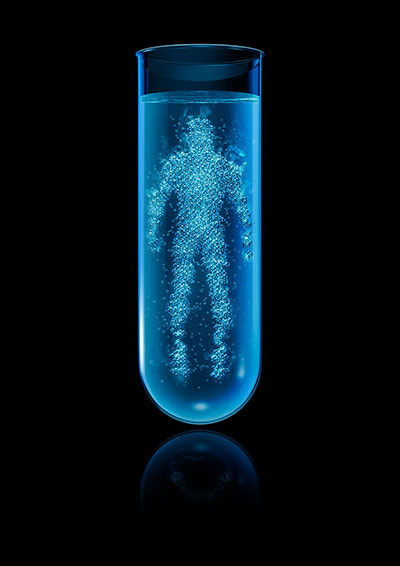 Of course, Gould is playing a little fast and loose with the facts here. If the picture that he paints is correct, there is no meaning, period. Not merely none to be found, but none to be created. If I scatter a group of Scrabble tiles across the floor, the random letters have no meaning, period. If Gould is right, we are biology and just biology. Nothing less, for sure. But certainly nothing more.
Of course, Gould is playing a little fast and loose with the facts here. If the picture that he paints is correct, there is no meaning, period. Not merely none to be found, but none to be created. If I scatter a group of Scrabble tiles across the floor, the random letters have no meaning, period. If Gould is right, we are biology and just biology. Nothing less, for sure. But certainly nothing more.
The idea that we’re just biology is expressed by other atheists, too. Here’s Richard Dawkins in full-flow:
We are survival machines — robot vehicles blindly programmed to preserve the selfish molecules known as genes. Our genes made us. We animals exist for their preservation and are nothing more than throwaway survival machines. The world of the selfish gene is one of savage competition, ruthless exploitation, and deceit. 4
Of course, if Dawkins is right, that raises some profound questions. A few months ago, I was speaking at a major Canadian medical school. After the open forum, I got chatting with a young medical student. He was an atheist and not particularly fond of Christians. “Christianity is bigoted, intolerant, antigay, antitrans, antiwomen,” he began.
A number of possible responses whirled through my mind, but I felt a sense in my spirit that I needed to try something different. “What’s wrong with being antiwomen?” I asked.
“What?” he exclaimed.
“What’s wrong with being antiwomen?” I repeated. “I don’t believe Christianity is, but let’s explore why you think it’d be wrong to be misogynistic.”
“It just is,” he said.
“Come on,” I said, “you’re a student at one of the best medical schools in the country. You must be incredibly smart, you can do better than that!” We went to and fro for a few minutes like this before I finally said to him gently: “Look, you’re an atheist, I assume?” “Yes,” he replied. I read Dawkins’s statement to him and asked him if he agreed. He said that he did. I then said: “Please forgive my candor, but if that’s what you believe, and you’re planning a career in medicine, then you’re in trouble. Because if the reason you plan to adhere to medical ethics is because “they just are,” yet deep down, you’re trying to do medicine on the basis of something like Dawkins’s idea, well, to be frank, God help your patients.”
“You’ve given me a lot to think about,” he said.
Don’t get me wrong. I admire the candor of a Dawkins or the honesty of a Gould. But their worldview leads to staggeringly bleak conclusions, because it destroys even the possibility of any meaningful answer to the question, what does it mean to be human?
The Christian Answer
So what of the Christian answer to the question? If naturalistic atheism cannot tell us who we are and for what we were purposed, then what of the Bible? Does it offer us anything? In the very first book of the Bible, in Genesis, we read a short statement that is mind blowing in its scope and foundational in its importance:
Then God said, “Let us make humankind in our image, in our likeness, and let them rule over the fish of the sea and the birds of the air, over the livestock, over all the earth, and over all the creatures that move along the ground.” So God created humankind in his own image, in the image of God he created them; male and female he created them. (Gen. 1:26–27)
This claim, that human beings were made in the image of God, that we bear the imago Dei, is unique to Christianity. You will not find such a statement in the Qur’an. Or in the Bhagavad Gita. Or in any other religious text. Only the Bible makes such a staggeringly high claim about what it means to be human. But this is not merely some theological idea, but one that is foundational for two reasons: it gives us value and it grounds ethics. Let’s look briefly at each for a moment.
Value
 First, the biblical teaching that human beings are made “in the image of God” provides a rock-solid, unshakable, objective, ontological foundation for your value and identity. According to the Bible, it doesn’t matter what your race, gender, age, or ability is; it doesn’t matter what you earn, what you’ve done, what your record is, you are made in the image of God and thus have value.
First, the biblical teaching that human beings are made “in the image of God” provides a rock-solid, unshakable, objective, ontological foundation for your value and identity. According to the Bible, it doesn’t matter what your race, gender, age, or ability is; it doesn’t matter what you earn, what you’ve done, what your record is, you are made in the image of God and thus have value.
Take this idea away, and you’re left with the question: how do you determine the value of a human life? If I’m a chemist, perhaps I’ll determine your worth by the value of the chemicals in your body. If I’m a psychologist, perhaps I’ll determine your worth by your IQ. If I’m an anthropologist, perhaps I might look at how your community values you — how many friends you have (both real ones and the pretend ones you have on Facebook) and assess your value that way. If I’m an economist, perhaps I might look at your salary, or what you produce, and assess the value of your life that way.
Of course, all of us know, instinctively, that those are terrible ways to try to determine the value of a life. Your value is not derived from your chemical constituents, your relationships, or your production. If we go that route, we’re all in trouble. But, I ask my atheist friends, if not by those ways, then how?
There is only one place I know, only one worldview where you can truly locate human value, and that’s in the biblical teaching about humans bearing the image of God—because only that tells you that your value comes not from your performance, but from outside.
Ethics
So the biblical teaching that humans are created in the image of God is the only secure ground for human value. It’s also foundational for something closely connected: ethics and how we treat one another.
Our culture encourages us to see other people as numbers, parts of a process, as things. But if human beings are just cogs, bits, bytes, data points on the social graph, then what’s wrong with treating people as such? How do we ground the idea that people should be treated with generosity and compassion—not just our friends, but even our enemies too?
Among all the world’s peoples, the Dalits of India have experienced some of the greatest sadness, pain, and persecution. They sit at the bottom of India’s highly stratified caste system and are considered “untouchable.”
Dalit women often bear the brunt of this; two-thirds of them have been sexually abused and 750,000 trafficked into sexual slavery, yet the conviction rate for crimes against Dalits is just 5.3 percent. How do you change a mind-set that says that a person is quite literally worthless, because of her caste, her family, her birthplace? Words like “all men are born equal” are just fine-sounding platitudes to those who daily experience such discrimination.
One Dalit religious leader summed up the problem in an interview. He said that by the time a child is fourteen, it is too late to change anything, as by then they have been told all of their life that they are worthless. The only way to correct this, he continued, is from a very young age to speak a different worldview into their lives — and the Dalits are finding that it is the biblical worldview, with its profound message that all of us bear God’s image, that is the most powerful corrective.
If you tell children all their life that they are worthless, and there will be implications. Here in the West, we are trying a different sociological experiment: discovering what will happen if you raise a generation to believe they are just tormented atoms in a bed of mud, accidental collocations of atoms,7 dancing to their DNA,8 nothing but a pack of neurons,9 or a 1 percent bit of pollution in the universe. We may be unpleasantly surprised what happens when they become our future leaders and begin acting out that philosophy.
Brokenness and Hope
This question of what it means to be human is profoundly important. And I believe that only the Bible can actually answer the question in any meaningful way: telling us that we are not reducible to atoms and molecules, or psychology and sociology, or to what we do or earn.
But there’s another side to the question: we need an answer to the question “what does it mean to be human?” that addresses our nobility but also addresses the fact that we are flawed. One of the challenges for secularism is to explain why human beings go wrong in so many ways — no matter how much education or political strategy or technology you apply, we do not arrive at secular utopias. As the poet Randall Jarrell wrote, “Most of us know, now, that Rousseau was wrong: that man, when you knock his chains off, sets up the death camps. Soon we shall know everything the eighteenth century didn’t know, and nothing it did, and it will be hard to live with us.”10
If this is true, why is it true? If humans are made in the image of God, why are we so often so beastly to one another? Perhaps it may help to reflect for a moment on the nature of an “image.” Inherent in the word image is the idea of reflection.
So if human beings were created in God’s image, that means we were designed, we were intended to reflect God — to image God, to reflect God’s glory to the world. And so the question for each of us thus becomes this one: if not God, what do you choose to reflect? All of us angle the mirror of our soul at something: if it isn’t God, it will be work or family or performance or money or, like Narcissus of Greek legend, ourselves, transfixed by our own image, beauty, cleverness or reputation. But those things will ultimately destroy you if you make them ultimate, because no mirror can be the source of its own light.
David Foster Wallace, the Pulitzer Prize-nominated postmodern novelist, wrote something profound on this:
In the day-to-day trenches of adult life, there is actually no such thing as atheism. There is no such thing as not worshipping. Everybody worships. The only choice we get is what to worship. And an outstanding reason for choosing some sort of God or spiritual-type thing to worship… is that pretty much anything else you worship will eat you alive. If you worship money and things — if they are where you tap real meaning in life — then you will never have enough. Never feel you have enough. It’s the truth. Worship your own body and beauty and sexual allure and you will always feel ugly, and when time and age start showing, you will die a million deaths before they finally plant you… Worship power — you will feel weak and afraid, and you will need ever more power over others to keep the fear at bay. Worship your intellect, being seen as smart — you will end up feeling stupid, a fraud, always on the verge of being found out. And so on.11
Here Wallace is nudging at the fact that whatever is the source of your meaning, your satisfaction, your joy, your energy—you have to have it, you need it, and you are afraid of losing it. And because of that, the prospect of losing it — your academic reputation, that relationship, your job, your standard of living — ends up controlling you. But if you serve your career or success and you fail, it will end up crucifying you inside with hatred, anxiety, jealousy, and self-loathing. By contrast, at the heart of the Christian faith, stands the news that Jesus was crucified for you.
So what is the solution? How can we deal with the fact that the mirror of our souls is cracked, broken, distorted? Well, the biblical theme of the image of God, which begins in Genesis, runs throughout the whole of the Bible, and in the New Testament we find the answer to that question. These words, from the apostle Paul express it:
For God has rescued us from the dominion of darkness and brought us into the kingdom of the Son he loves, in whom we have redemption, the forgiveness of sins. The Son is the image of the invisible God, the firstborn over all creation. For in him all things were created: things in heaven and on earth, visible and invisible, whether thrones or powers or rulers or authorities; all things have been created through him and for him. He is before all things, and in him all things hold together. And he is the head of the body, the church; he is the beginning and the firstborn from among the dead, so that in everything he might have the supremacy. For God was pleased to have all his fullness dwell in him, and through him to reconcile to himself all things, whether things on earth or things in heaven, by making peace through his blood, shed on the cross. (Col. 1:13–20)
According to the Bible, Jesus Christ is the perfect image of God — and was willing to be trampled on, rejected, broken for us, that our broken image might be remade, forgiven, restored, and redeemed. The story of Jesus’s death and resurrection are at their heart about restoration — the promise and the power to restore the image of God that we have allowed to become so marred and twisted in us.
If it is, we were made with a purpose. We were made for something. We were made to discover God’s love, to love God in return, and to love our neighbor. If Christianity is true, love is the supreme ethic. That’s what it means to be human, and it gives an oughtness to human life.
On February 17, 1941, the Polish Catholic monk Maximilian Kolbe was arrested by the German Gestapo for his human rights activism: sheltering Jews and other refugees.
After his arrest, Kolbe was shipped to the notorious Auschwitz concentration camp. A year later, a prisoner escaped; to deter further escape attempts, the deputy camp commander picked ten men at random to be locked in an underground bunker and starved to death. When one of the selected men began crying out, “My wife! My children!” Kolbe volunteered to take his place. He was thrown into a tiny bunker with the other nine men and left to die of starvation and dehydration. Why did Maximilian Kolbe do this? Because he believed that love was the supreme ethic, and it compelled him to act. He was acting on the words of his friend and Savior, Jesus, who said, “Greater love has no one than this, that someone lay down his life for his friends” (John 15:13 ESV).
And Jesus, of course, demonstrated this Himself. And that’s an important point to land on, because if we say, “human value and dignity make sense only if God exists,” that raises the question: which God are we talking about? In Jesus, we have a God who looks very different.
Economic theory tells us that something’s value is determined by what somebody is willing to pay for it: for instance, my iPad is valuable because I was willing to pay hundreds of pounds for the convenience it offers. Take my iPad to an island where there is no power, cell phone signal, or WiFi, and it is probably worthless. So what is our value as human beings? Christianity says that God was willing to pay an incredible price for each one of us, the price of His Son, Jesus Christ. That’s why we have value.
Human beings are not just atoms, we are not just matter. We are more than the stuff of which we are made, more than our economic production, our relationships, our biology, our psychology, more than our moral performance. We are image bearers who carry incredible value and significance. Value so high that Jesus was willing to pay the price of His life to redeem and restore that broken image, that the mirror of our souls might be angled at Him and reflect the True Image of God as it was intended. That is what it means to be human.
|
Notes: |

Andy Bannister
AuthorAndy Bannister is an author, speaker, and broadcaster. He is currently the Director of the Solas Center for Public Christianity, an evangelism and training ministry, as well as the Adjunct Research Fellow at Arthur Jeffery Centre for the Study of Islam at Melbourne School of Theology. He holds a PhD in Islamic Studies and has taught extensively at universities across the world on both Islam and Philosophy. Andy speaks regularly on Christianity to audiences of all faiths across Europe, Canada, the US, and further afield. He is an author of several books including: The Atheist Who Didn't Exist, Do Muslims and Christians Worship the Same God? and most recently, How to Talk About Jesus Without Looking Like an Idiot.

Recommended Reading:
John F. Kilner, Dignity and Destiny: Humanity in the Image of God (Eerdmans, 2015)
Misunderstandings about what it means for humans to be created in God's image have wreaked devastation throughout history — for example, slavery in the U. S., genocide in Nazi Germany, and the demeaning of women everywhere.
In Dignity and Destiny John Kilner explores what the Bible itself teaches about humanity being in God's image. He discusses in detail all of the biblical references to the image of God, interacts extensively with other work on the topic, and documents how misunderstandings of it have been so problematic.
People made according to God's image, Kilner says, have a special connection with God and are intended to be a meaningful reflection of him. Because of sin, they don't actually reflect him very well, but Kilner shows why the popular idea that sin has damaged the image of God is mistaken. He also clarifies the biblical difference between being God's image (which Christ is) and being in God's image (which humans are). He explains how humanity's creation and renewal in God's image are central, respectively, to human dignity and destiny.
Locating Christ at the center of what God's image means, Kilner charts a constructive way forward and reflects on the tremendously liberating impact that a sound understanding of the image of God can have in the world today.
 COPYRIGHT: This publication is published by C.S. Lewis Institute; 8001 Braddock Road, Suite 301; Springfield, VA 22151. Portions of the publication may be reproduced for noncommercial, local church or ministry use without prior permission. Electronic copies of the PDF files may be duplicated and transmitted via e-mail for personal and church use. Articles may not be modified without prior written permission of the Institute. For questions, contact the Institute: 703.914.5602 or email us.
COPYRIGHT: This publication is published by C.S. Lewis Institute; 8001 Braddock Road, Suite 301; Springfield, VA 22151. Portions of the publication may be reproduced for noncommercial, local church or ministry use without prior permission. Electronic copies of the PDF files may be duplicated and transmitted via e-mail for personal and church use. Articles may not be modified without prior written permission of the Institute. For questions, contact the Institute: 703.914.5602 or email us.
-
Recent Podcasts
A Welcome Change in Apologetics
by Randy Newman, Aimee Riegert on April 19, 2024We’re burdened for our friends who don’t know...Read More
-
Questions That Matter Podcast – Samuel James and Digital Liturgies
by Samuel James, Randy Newman on April 19, 2024
-
The Side B Stories – Dr. James Tour’s story
by Jana Harmon, James Tour on April 12, 2024
-
Recent Publications
Isn’t Morality Relative?
by Christopher L. Reese on April 1, 2024It is widely accepted in the Western world...Read More
-
Do Muslims and Christians Worship the Same God?
by Andy Bannister on March 1, 2024
-
Artificial Intelligence and Its Impacts on Humanity
by John Lennox on February 13, 2024
0
All Booked
0.00
All Booked
0.00
All Booked
20599
GLOBAL EVENT: 2024 Study Tour of C.S. Lewis’s Belfast & Oxford
https://www.cslewisinstitute.org/?event=global-event-2023-study-tour-of-c-s-lewis-belfast-oxford-2&event_date=2024-06-22®=1
https://www.paypal.com/cgi-bin/webscr
2024-06-22

Next coming event
Days
Hours
Minutes
Seconds
GLOBAL EVENT: 2024 Study Tour of C.S. Lewis’s Belfast & Oxford
On June 22, 2024 at 12:00 pmat Belfast, Northern Ireland & Oxford, EnglandTags
Speakers

Andy Bannister
Author
Team Members

Andy Bannister
AuthorAndy Bannister is an author, speaker, and broadcaster. He is currently the Director of the Solas Center for Public Christianity, an evangelism and training ministry, as well as the Adjunct Research Fellow at Arthur Jeffery Centre for the Study of Islam at Melbourne School of Theology. He holds a PhD in Islamic Studies and has taught extensively at universities across the world on both Islam and Philosophy. Andy speaks regularly on Christianity to audiences of all faiths across Europe, Canada, the US, and further afield. He is an author of several books including: The Atheist Who Didn't Exist, Do Muslims and Christians Worship the Same God? and most recently, How to Talk About Jesus Without Looking Like an Idiot.



